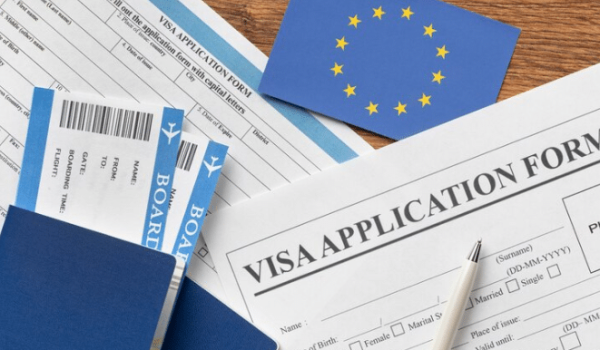The Type D visa for Bulgaria is essential for those wishing to settle in the country long-term, for example, to start a company in bulgaria. This visa, also known as a long-term stay visa, allows multiple entries and is intended for workers, students, entrepreneurs, and investors.
In this article, we will explore the process of obtaining a Type D visa, examining requirements, application methods, and the types of visas available.
Looking for Accountancy Service in Bulgaria?
Request a free consultation
Book your free 30 minutes meeting with us here to receive all the support you need
What is the Bulgarian Type D Visa?
The Type D visa allows multiple entries into Bulgaria and provides the opportunity to apply for long-term residency. It is generally issued for six or twelve months, depending on the purpose of the stay. This visa is mandatory for those wishing to reside in Bulgaria for work, study, family, or investment purposes. There are two types of Type D visa, one with a duration of 6 months and one for 12 months.
Requirements for the Bulgarian Type D Visa
Applicants must meet at least one of the eligibility criteria specified in the Foreigners in the Republic of Bulgaria Act (Art. 24, Paragraph 1). These criteria include employment relationships, family ties, business activities, and investments.
Reasons for the Type D Visa
Below are some of the main reasons for applying for a Bulgarian Type D visa:
- Employment: Applicants must obtain a work permit issued by the Bulgarian Ministry of Labor and Social Policy, subject to receiving a confirmed job offer from a Bulgarian employer.
- Business Activity: Entrepreneurs wishing to establish themselves in Bulgaria must demonstrate the ability to create job opportunities for at least ten Bulgarian citizens through their business activities.
- Education: Full-time students enrolled at an accredited Bulgarian university can apply for a Type D visa. However, the visa is not granted for language courses.
- Skilled Professionals: Highly skilled migrant workers and specialists involved in international contracts concerning Bulgaria can apply for this visa.
- Marriage: Applicants married to a Bulgarian citizen or a person who holds the right of permanent residence in Bulgaria can apply for a Type D visa for family reasons.
- Corporate Representation: Representatives of foreign companies registered with the Bulgarian Chamber of Commerce and Industry can apply for the Type D visa to operate in Bulgaria.
- Startup/Entrepreneur: To obtain a Type D visa as an entrepreneur, you must demonstrate an investment of at least 100,000 BGN in a new business venture in Bulgaria.
- Family Relationships: Various categories can apply for a Type D visa based on family relationships, such as:
- Financially independent parents of a Bulgarian citizen or a foreigner with permanent residency.
- Family members of foreign citizens permanently residing in Bulgaria.
- Family members of foreign citizens with diplomatic immunity.
- Medical Treatment: Those requiring medical treatment in Bulgaria must demonstrate they have arranged all necessary conditions, including coverage of related medical expenses.
- Accredited Media Representatives: Accredited journalists and foreign correspondents can obtain a Type D visa to practice their profession in Bulgaria.
- Retirement: Retired foreign nationals with sufficient financial resources can apply for a Type D visa to settle in Bulgaria.
- Foreign Investments: Those with significant assets who meet the minimum investment criteria can obtain an investor visa.
- Foreign Investment Management: Individuals involved in managing foreign investments in Bulgaria can apply for a Type D visa.
- Freelancers: Freelancers must obtain a permit to practice their self-employed activities from the Ministry of Labor and Social Policy.
- Volunteering: The visa for volunteering can be obtained with permission from the Ministry of Justice to carry out unpaid activities with recognized organizations.
- Special Protection: This visa is reserved for those who have been granted special protection status due to human trafficking or forced labor situations.
Read also: Working Remotely from Bulgaria: Opportunities and Advantages for Professionals
Documents Required for the Bulgarian Type D Visa
Applicants for a Bulgarian Type D visa must submit various documents to demonstrate their eligibility. The basic documents include:
- Completed Visa Application Form: Properly completed visa application form.
- Passport-Size Photos: Two recent photos (45 mm x 35 mm) submitted with the application.
- Valid Passport: The passport must have at least one blank page and be valid for the entire duration of the stay in Bulgaria.
- Proof of Sufficient Funds: A bank statement showing at least six times the Bulgarian monthly minimum wage.
- Private Medical Insurance: The applicant must provide proof of medical insurance issued by a Bulgarian insurer.
- Proof of Accommodation: Notarized rental agreement in Bulgaria.
- Criminal Background Check: Documentation proving the absence of a criminal record.
- Visa Fee Paid: Receipt of payment for the visa fee.
Additional documents may be required depending on the reason for the application, and non-Bulgarian documents must be accompanied by certified translations.
Application Procedure for the Type D Visa
Applicants must submit the application in person at the nearest Bulgarian embassy or consulate, at least three months before the intended date of entry into Bulgaria. The steps in the application process are:
- Make an Appointment: Check the embassy’s website for scheduling information.
- Submit the Application: Provide all required documentation.
- Wait for Processing: Wait for instructions from the embassy or consulate.
The processing time ranges from one to two months. Approximately 90% of applications are processed within four weeks, but some cases may require longer processing times. Additional documents or clarifications may be requested.
Once the Type D visa is obtained, applicants can enter Bulgaria and apply for a residence permit to establish long-term residency. It is important to arrange all necessary provisions for the stay, including accommodation and insurance coverage.
Read also: Company Formation in Bulgaria: How to Do It?
Conclusions
Obtaining a Type D visa for Bulgaria requires careful preparation and compliance with specific requirements. Whether for work, study, investments, or family reunification, this visa represents the first step towards long-term residency. Adhering to regulations and providing complete documents is essential to ensure a smooth process.
For personalized assistance in preparing your Bulgarian Type D visa application, you can rely on Accountancy Bulgaria. Our team of experts is here to guide you through every step of the process, providing you with all the necessary information and tailored support for your needs. From organizing the documentation to submitting the application, we are committed to ensuring a smooth procedure, increasing your chances of success.
Looking for Accountancy Service in Bulgaria?
Request a free consultation
Book your free 30 minutes meeting with us here to receive all the support you need

